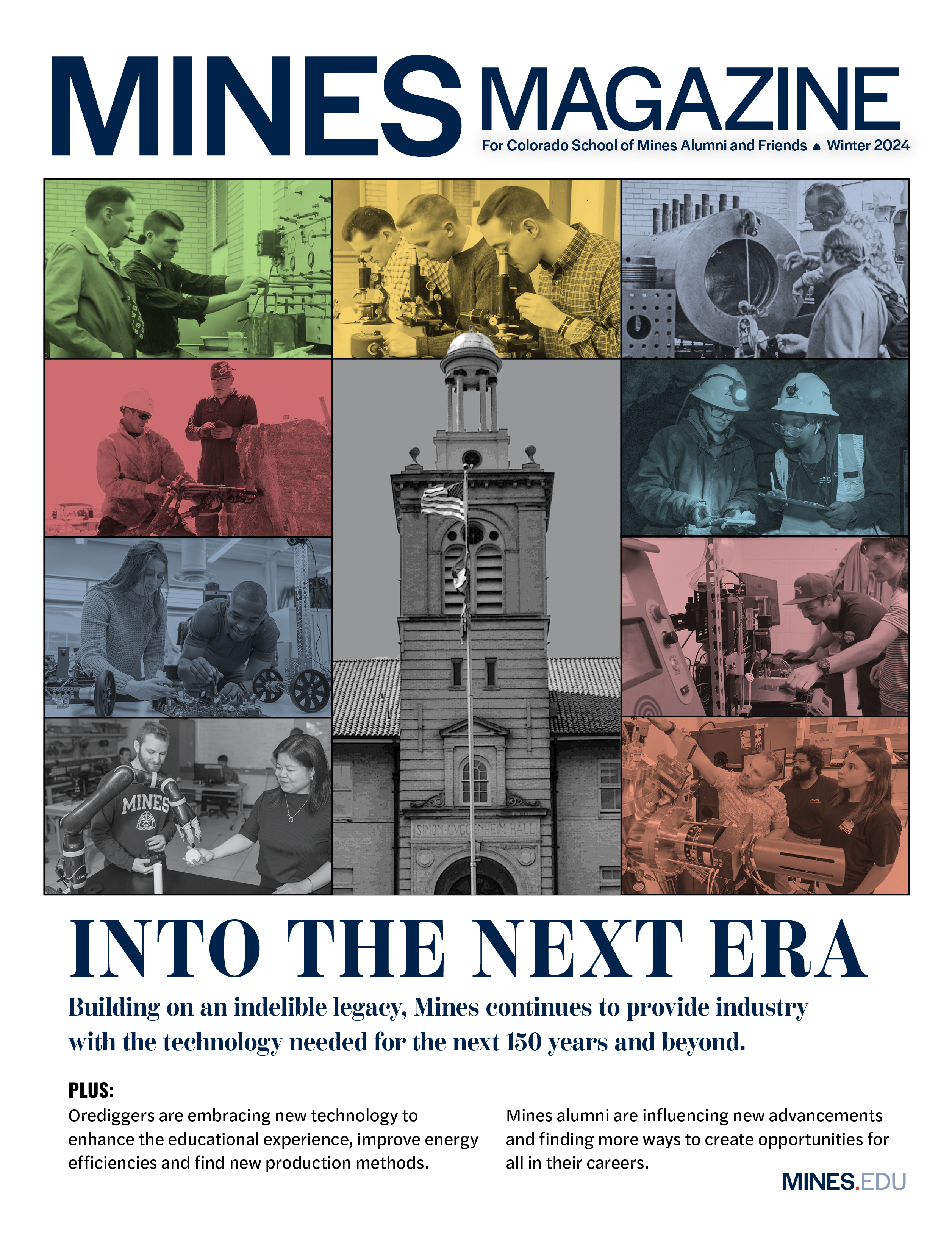Leading like a boss: Many Mines alumni are in executive positions at oil and gas companies, guiding the industry toward a bright future
The oil and gas industry has changed dramatically over the past two decades. Competition for resource opportunities is fierce, new technology has transformed traditional exploration and extraction processes and the capacity to see opportunity where others don’t is critical. Despite these changes, one constant remains: the need for leaders who can solve tough problems and work for the greater good. Mines alumni are well prepared for the challenge, as these four industry veterans demonstrate.
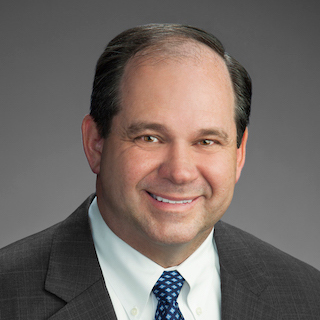
John J. Christmann IV ’88
President, chief executive officer and director, Apache Energy
As the 11th member of his family to graduate from Mines, John J. Christmann IV ’88 knew he’d receive a first-class education. But seeing the oil and gas industry on the ropes in 1986 made Christmann worry about his prospects, since he would be a freshly minted petroleum engineer two years later. He turned to his grandfather, John J. Christmann Jr. ’36, for reassurance. “My granddad’s advice was simple,” he explained. “He told me, ‘The best time to get in is when everyone is getting out, because the oil and gas industry isn’t going away.’”
The elder Christmann was right. Today, his grandson is president and CEO of Apache Corporation, a thriving oil and gas exploration and production company with operations in the United States, Egypt and the United Kingdom.
Christmann joined Apache in 1997 and became CEO in 2015. The move into the corner office has been rewarding but not easy. “I quickly realized that we needed to do a hard stop and reset because our cost structure had become misaligned with the industry’s new price environment. Our industry has changed dramatically in the last 20 years as a result of [new] technology,” he said. “Today, we’re exploring for source rock through techniques like horizontal drilling and multistage fracking—things that were never imagined when I was in school.”
Due to hard work at all levels, Apache has emerged stronger and more capital efficient. “Navigating through such full-scale change is hard, but Mines taught me that there’s not a problem that you can’t solve if you break it down into its components and get after it,” Christmann said. “As a leader, I try to keep things simple, stay focused on our core values and never ask people to do anything that I wouldn’t do myself.”
The approach is working. Apache has been recognized repeatedly for excellence in corporate social responsibility and earlier this year was named one of Fortune’s most admired companies for the second year in a row for, among other things, its commitment to social responsibility and quality of management.
“We recruit smart people, earn their loyalty, give them the tools they need to succeed and turn them loose,” Christmann said. “We want to leave the world a better place, and we’re committed to giving back to the communities in which we operate. I embrace the word ‘and’—it’s powerful. We can have safety and production. We can be conservationists and develop oil and gas—it takes work, but it can be done.”
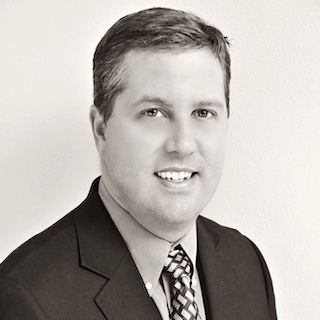
Adam Sayers ’95, ME ’00
President and co-founder, Axia Energy II
Adam Sayers ’95, ME ’00 is no stranger to hard work. The petroleum engineer has spent more than two decades in the field and is leading the fourth private equity firm he helped found since the early 2000s. But after graduating from Mines, he confessed, “The first day at work was the easiest I’d had in the last four years. Mines teaches you everything about hard work and organization. If you’re going to make it through, you need to be determined. That’s why Mines engineers are so well prepared—we learn to be gritty.”
Grit is essential for survival in today’s oil and gas industry, according to Sayers. “Since 1995, we’ve witnessed massive resource plays that are leading the way to energy independence in the U.S., something that was not imagined in the early 1990s or even 2000s,” he explained. “In the period from the late 1990s until now, the business has become much more about logistics, efficiencies and multiple rig plays. In fact, I can’t imagine another 20-year span in this industry where things have changed so drastically.”
Today, a company rises or falls on its ability to take data in, interpret it and then execute a plan. “There’s a lot of money in oil and gas right now and the competition is fierce—where you used to have one or two companies looking at an opportunity, you now have 10,” he said. “My biggest challenge as CEO is finding opportunities to develop.”
Another key to success: hiring the best educated, hardest-working people to realize those opportunities. “We hire the best, then give them authority and ownership over their career,” Sayers said. “We have to create an atmosphere where people can speak their mind without fear of retribution.”
Living up to one’s word and doing the right thing is also critical. “Engineers are constantly working the numbers, trying to figure out an approach that is not only cost-effective but also responsible,” Sayers said. “As a student at Mines, you take ethics classes and the importance of doing the right thing is repeatedly made clear. The oil and gas industry is not without impact, but we need to be honest and up front about that impact. Mines helps students establish a good moral baseline for thinking those issues through.”
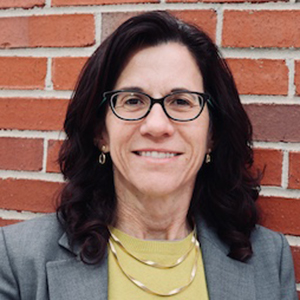
Julia Gwaltney ’93
Vice president of strategic planning and development, Gary Permian, LLC
As an industry veteran with more than 20 years of experience, Julia Gwaltney ’93 understands that the only constant in oil and gas is change. “It’s a business that runs 24/7—there’s no mercy,” she said. “There’s an ever-changing set of problems to solve—sometimes financial, sometimes technical, sometimes personnel-related—and I love it. It keeps me on my toes and continuously learning.”
It’s ongoing change in the form of new processes that’s had the most profound impact on the industry during her tenure, Gwaltney observed. “Changes in communication have dramatically altered the face of our business. For example, phone service to rig locations used to be poor, necessitating a physical presence in the field, and activity reports used to be handwritten, then scanned and faxed,” she explained. “Today, we can transfer digital data from rigs via cellphones and utilize sophisticated software to sift through that data, which gives us a much better sense of what’s going on. I can pull real-time drilling and production from a well and see how it’s doing from anywhere at any time—it’s a profound difference.”
But it’s her Mines background that really gave Gwaltney a leg up. “Mines is well recognized in our industry—alumni are known for having good heads on their shoulders and the capability to think things through,” she said. “Our professors expected excellence in execution and delivery on promises. There were no exceptions and no bell curve.”
It was an attitude that provided wonderful training for the real world. “In business, you quickly realize that at the end of the day, you’re delivering profits for investors or you’re not. There are always challenges, and if you don’t get it right the first time, you try again. Four years at Mines taught me that when the going gets hard, you don’t quit—you just keep going.”
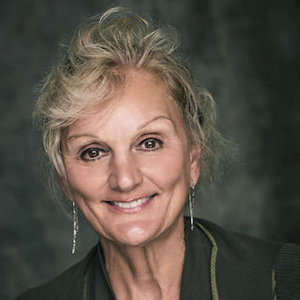
Sandy Stash ’81
Executive vice president of safety, operations, engineering and external affairs, Tullow Oil
Ten years after completing her degree in petroleum engineering, Sandy Stash landed a job running the Anaconda Mine, the largest Superfund site in the U.S. “It was a valuable experience—I had to learn to deal with an understandably angry public and then work collaboratively with people to come up with solutions to the problems they faced.”
Stash has continued to act as a problem-solver throughout her 30-plus years in the industry, working in safety, engineering and operations at Talisman Energy, BP, TNK-BP, ARCO and now Tullow Oil in London. For much of that time, she has worked internationally, an experience she describes as transformative. “The challenge of looking at issues through the lens of another culture has sometimes been difficult but also extraordinarily rewarding. I’ve been so lucky—I’ve had challenging jobs that have given me the opportunity to step up, which makes me proud.”
Stash credits Mines for instilling a strong work ethic and sense of resilience. “There’s something about the ethos at Mines—the programs are tough and students are competitive, but it’s not a cutthroat environment. There’s a sense of teamwork and shared experience that leads to lifelong friendships and networks.”
Stash also believes a sensitivity to the shared experience will be a defining factor for companies that succeed in the industry moving forward. “The hydrocarbon space will be the site of a big change moving forward—with the transition to a lower carbon future front and center—and the companies that deal with this issue successfully will be the winners,” she explained.
But the way winning is defined will be more nuanced. “Industry leaders won’t just be concerned with investors—they’ll also be thinking about employees and the wider world,” Stash said. “That’s the essence of good business, and I think Mines is doing a beautiful job of educating students about this new reality.”


